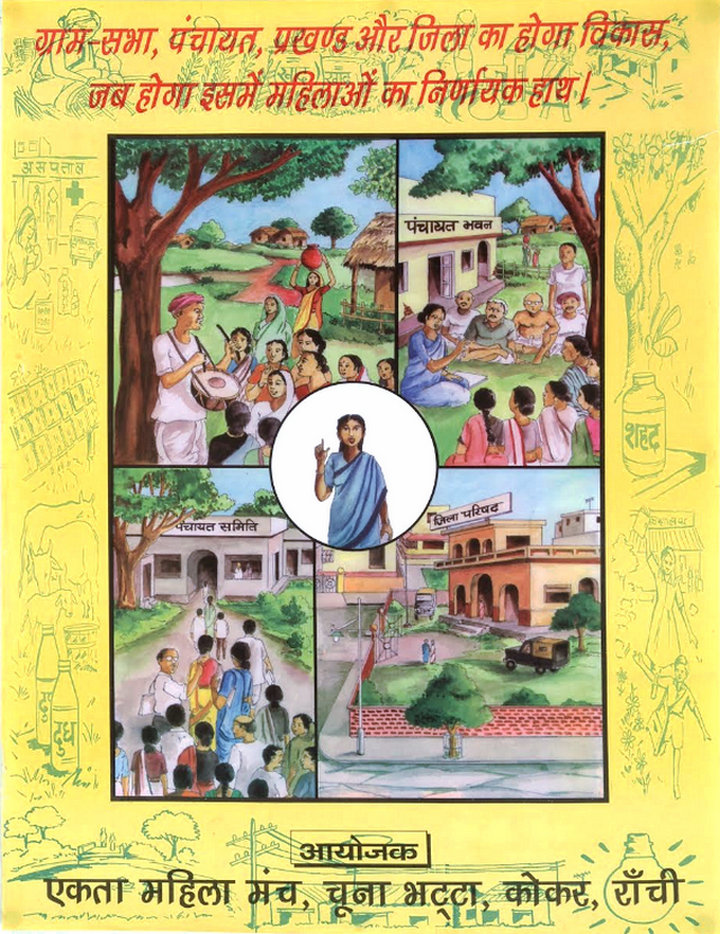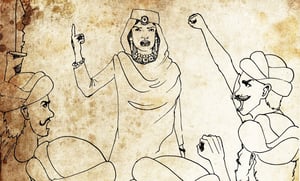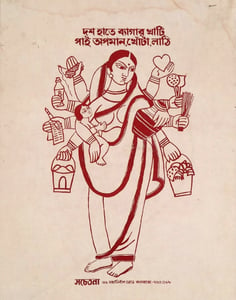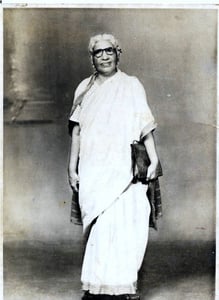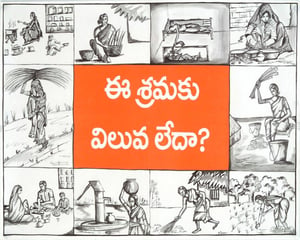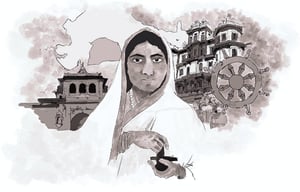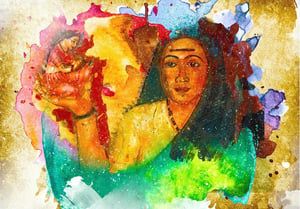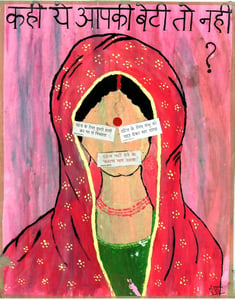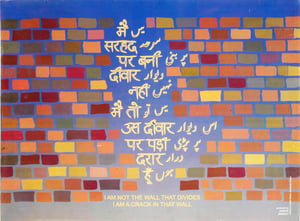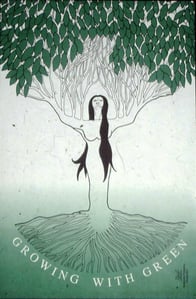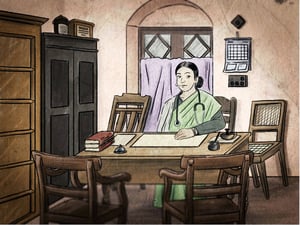Women changing the age-old structures of power in India.
In 1992 the 74th Amendment to the Indian Constitution brought in 33 per cent reservation for women in village and municipal elections. At first the move was greeted with some skepticism. A common reaction at the time, and one that has considerable currency even today, was that the women who would come into positions of political power on reserved seats would be mere proxies for their men. Women like 50-year old Ranganayagi, a Scheduled Caste woman from Tamil Nadu, proved this wrong. Not only did she confront intimidation and terrible violence to stand for election, but once in power, worked hard on village development and particularly on the needs of poor, scheduled caste women. All over India, of the million plus women who hold power as a result of the 74th Amendment, hundreds of thousands are working to change the structures of power at the grassroots level. The feminization and democratization of the rural public sphere has been one of the most significant developments in the women’s movement in India. However, many women, especially those who belong to lower and backward castes and classes, have had to face tremendous opposition in the form of unprecedented violence, threats and intimidation. A similar move to reserve a third of elected posts for women in parliament has faced much stronger opposition.
Women’s march to Delhi to demand a law against domestic violence.
A demand for 33 per cent reservation for women in panchayats.
Poster by Vama showing a range of issues on which politician routinely let women down.
A call for women to step out of their homes and fight for their rights.
Demanding the right to own land and be educated.
Riding towards a better future.
Call for more participation of women in local governance.
This poster was printed especially for a training program conducted by Asmita to encourage local self governance. This training program was started almost 15 years ago and over 14,000 women have participated in it.
Women as decision makers.
Corruption among male politicians.
Recognizing the power of her vote.
Equal participation of women in the village council.
Zubaan is an independent feminist publishing house based in New Delhi with a strong academic and general list. It was set up as an imprint of India’s first feminist publishing house, Kali for Women, and carries forward Kali’s tradition of publishing world quality books to high editorial and production standards. Zubaan means tongue, voice, language, speech in Hindustani. Zubaan publishes in the areas of the humanities, social sciences, as well as in fiction, general non-fiction, and books for children and young adults under its Young Zubaan imprint.
